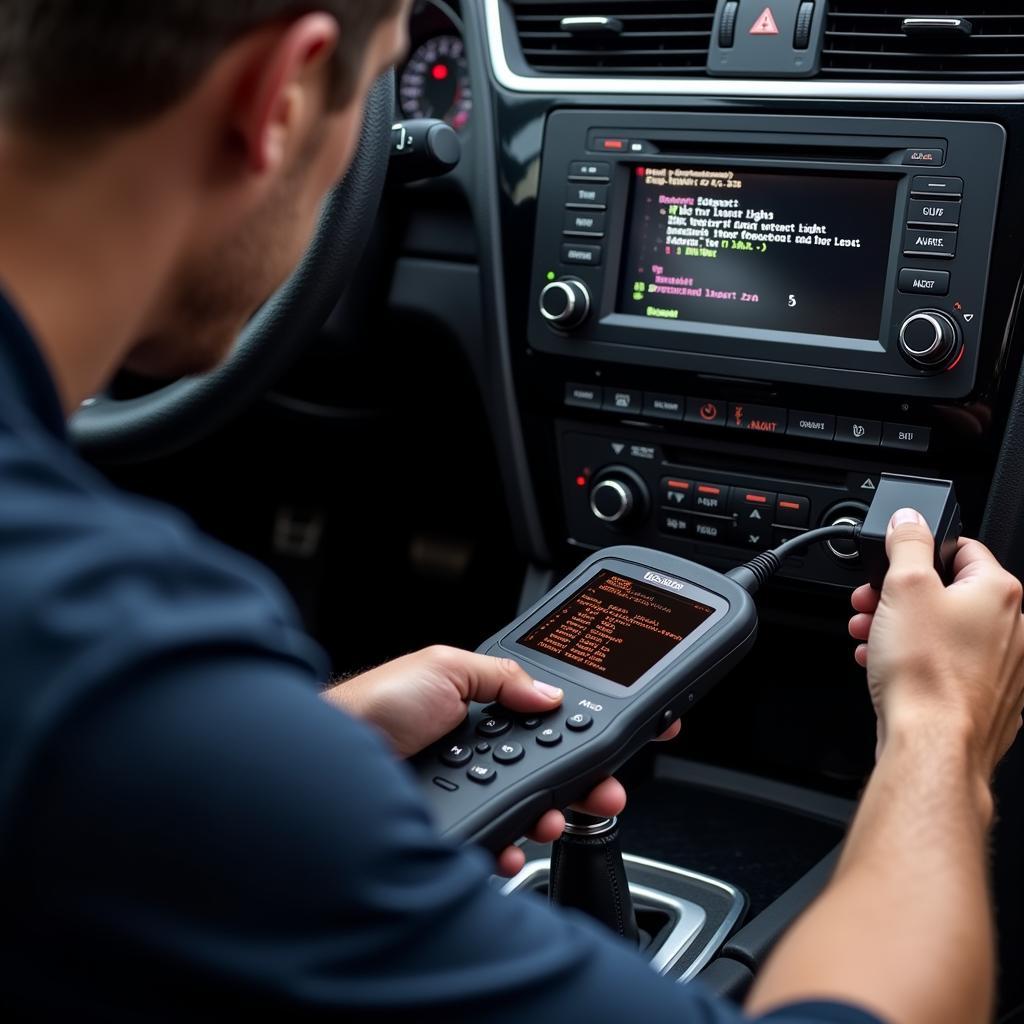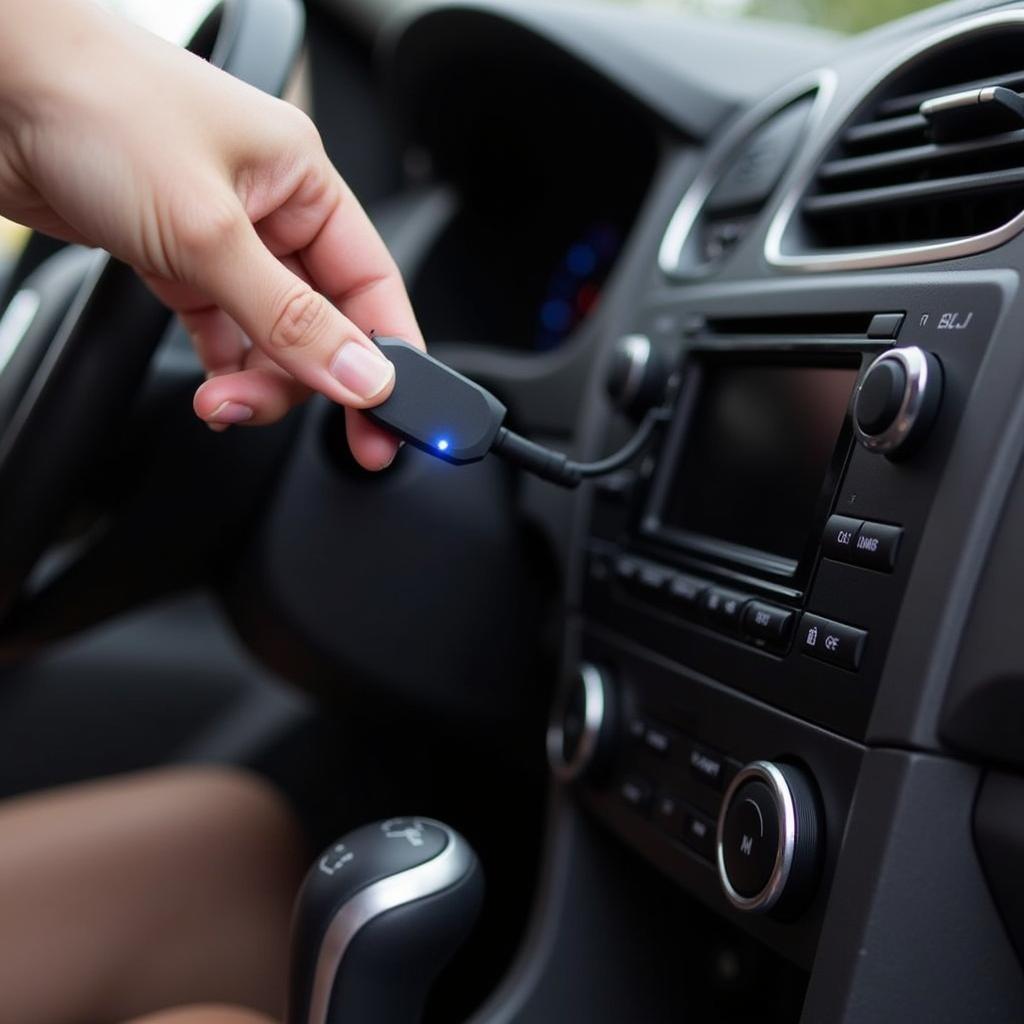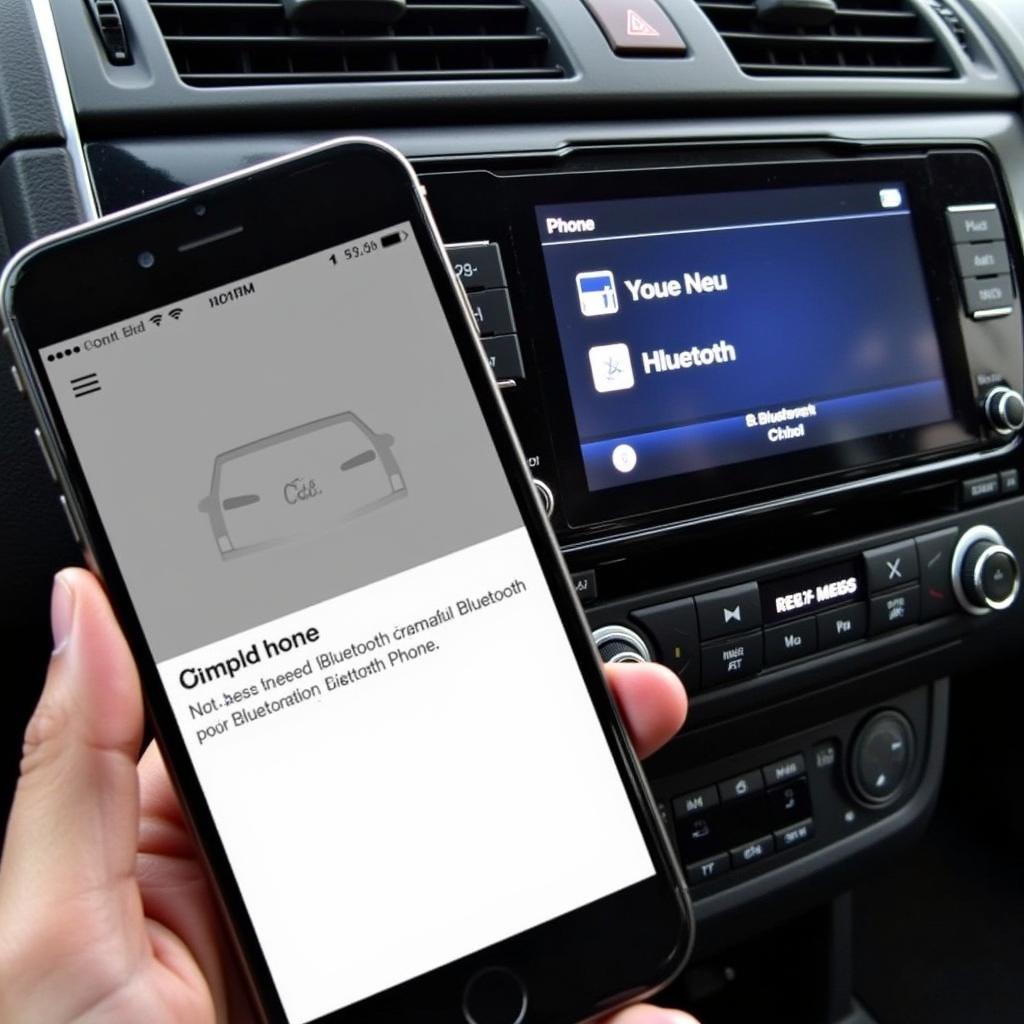The EPC warning light on your Seat Leon can be a frustrating and concerning experience. This guide provides a comprehensive overview of the EPC light, its potential causes, diagnostic approaches, and solutions, offering you the knowledge to address this issue effectively.
Understanding the EPC Warning Light
The EPC (Electronic Power Control) light illuminates your dashboard to signal a problem within your Seat Leon’s electronic power control system. This system manages several crucial components, including throttle control, fuel injection, and ignition timing. A malfunction in any of these areas can trigger the EPC light. Ignoring this warning can lead to decreased performance, reduced fuel efficiency, and even potential damage to your vehicle.
Common Causes of the EPC Warning Light in a Seat Leon
Several factors can cause the EPC light to illuminate in your Seat Leon. These range from simple sensor issues to more complex problems within the engine management system.
- Faulty Brake Light Switch: A malfunctioning brake light switch can surprisingly trigger the EPC light, as it communicates with the electronic power control system.
- Throttle Position Sensor Issues: This sensor relays information about the accelerator pedal’s position. A faulty sensor can send inaccurate data, leading to the EPC light.
- Mass Air Flow (MAF) Sensor Problems: The MAF sensor measures the air entering the engine. A dirty or failing MAF sensor can disrupt the air-fuel mixture, triggering the EPC warning.
- Oxygen Sensor Malfunction: Oxygen sensors monitor the exhaust gases to optimize combustion. A faulty sensor can lead to an incorrect air-fuel mixture and activate the EPC light.
- Spark Plugs and Ignition Coils: Worn spark plugs or faulty ignition coils can cause misfires, which can trigger the EPC light.
- Vacuum Leaks: Leaks in the intake system can disrupt the engine’s air-fuel ratio, potentially illuminating the EPC light.
Diagnosing the EPC Warning Light: Remote and On-site Options
Diagnosing the EPC light requires specialized tools and expertise. While some basic checks can be performed visually, a proper diagnosis often involves using a diagnostic scanner to read fault codes stored in the car’s computer.
Remote Diagnostics and Software Solutions
Modern technology allows for remote diagnostics and software programming, offering a convenient and often quicker solution. Specialized software can access your Seat Leon’s computer remotely to identify the root cause of the EPC light. In some cases, software updates or recalibrations can be performed remotely to resolve the issue.
On-site Diagnostics and Repair
For more complex problems, on-site diagnostics and repair might be necessary. A qualified technician can use advanced diagnostic equipment to pinpoint the fault and perform the necessary repairs.
 OBD Scanner Diagnosing Seat Leon EPC Issue
OBD Scanner Diagnosing Seat Leon EPC Issue
What to Do When Your Seat Leon’s EPC Light Comes On
If your Seat Leon’s EPC light illuminates, it’s crucial to address the issue promptly. While it might be tempting to ignore it, doing so can exacerbate the problem and potentially lead to more extensive damage.
- Check your brake lights: Ensure all your brake lights are functioning correctly. A faulty brake light switch can be a simple fix.
- Avoid aggressive driving: Driving aggressively can worsen the underlying issue and potentially cause further damage.
- Seek professional diagnostics: If the brake lights are working, it’s best to seek professional diagnostics to identify the root cause.
“Addressing the EPC light promptly can prevent minor issues from escalating into major repairs,” advises John Miller, Senior Automotive Diagnostic Technician at European Auto Solutions.
Preventing Future EPC Warning Light Issues
Regular maintenance and proactive checks can help prevent future EPC warning light issues in your Seat Leon.
- Regularly inspect and replace spark plugs and ignition coils: This can prevent misfires and maintain optimal engine performance.
- Clean or replace the MAF sensor: A clean MAF sensor ensures accurate air-fuel mixture calculations.
- Address vacuum leaks promptly: Vacuum leaks can disrupt engine performance and trigger the EPC light.
“Preventive maintenance is key to avoiding unexpected issues and keeping your Seat Leon running smoothly,” adds John Miller. “Regularly servicing your vehicle can save you time and money in the long run.”
Conclusion
The EPC warning light in your Seat Leon signals a potential problem within the electronic power control system. Addressing this issue promptly is essential to prevent further damage and maintain optimal performance. By understanding the potential causes, diagnostic approaches, and preventive measures, you can effectively manage and resolve EPC light issues in your Seat Leon.
FAQ
-
Can I drive my Seat Leon with the EPC light on? While you can technically drive, it’s not recommended. Driving with the EPC light on could worsen the underlying issue.
-
How much does it cost to fix the EPC light issue? The cost varies depending on the underlying cause and the necessary repairs.
-
Is the EPC light the same as the check engine light? No, the EPC light is specific to the electronic power control system, while the check engine light covers a broader range of engine-related issues.
-
Can a faulty battery cause the EPC light to come on? While less common, a faulty battery can sometimes trigger the EPC light.
-
Can I reset the EPC light myself? While you might be able to temporarily reset the light, it will likely reappear if the underlying issue is not addressed.
-
How can I prevent the EPC light from coming on again? Regular maintenance and addressing any issues promptly are the best ways to prevent the EPC light from recurring.
-
What should I do if the EPC light comes on after a recent repair? Contact the mechanic who performed the repair, as it could be related to the recent work.



